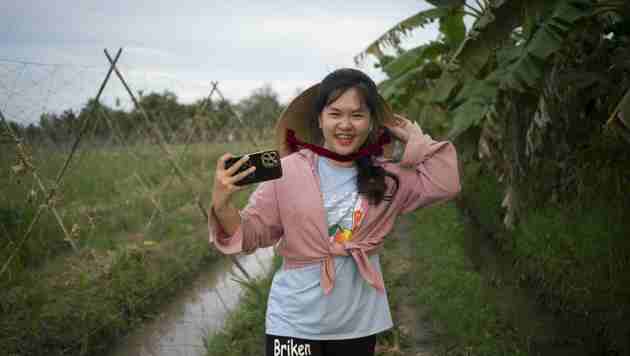Meet Keya from She Creates Change
Leading the way to a more equitable future
September 27, 2024
In a community marked by pervasive gender inequality, Keya made history by standing up for the safety of women and girls. From being forced to read in secret to boldly confronting harassment and gender discrimination, Keya's journey is a testament to her courage.
A Room to Read Girls’ Education Program participant, Keya learned her rights and discovered the power of her voice through Room to Read's life skill sessions, using it to speak up for herself and other girls when no one else dared to.
Keya: A story about leadership
As a young girl, Keya looked forward to the close of each day when her father returned from work. Her father was a barber and his return from work brought Keya the day's newspaper, already well read by her father's customers. Keya would immerse herself in the pages, often reading aloud to her mother. She was fascinated by politics and dreamed of becoming a deputy commissioner in Bangladesh.
When Keya grew older, her father deemed her reading inappropriate. Girls of her age, he told her, should keep their heads down and avoid trouble. He stopped bringing the paper home, cutting off Keya from the news and learning she loved.
Keya was deeply upset. Reading the paper was part of her education, allowing her to access a world of possibilities and igniting new interests and ambitions for her future. She would not give that up. Determined, she began collecting discarded newspapers from street vendors who often used the papers to wrap food.
"He couldn’t stop me," she said, recalling her father's decision. "I would read them and tell my mother what was going on in the world."
One day, Keya and her friends were harassed by a group of boys while walking home from school. When Keya told the boys to stop, they became belligerent. When she asked her parents what she should do, she was told to ignore the behavior. To stay safe, they said, she must not engage. So Keya went to her teachers. They told her to focus on her dreams. But how, she wondered, could she continue her education under the daily threat of violence?
As the situation worsened, Keya's parents decided to keep her out of school. Keya stayed at home for three months, longing to return to the classroom. She knew she had to persevere.
I want to help girls like Keya
In her Room to Read life skills classes, Keya had learned her rights — the right to move freely, the right to make choices, the right to protest. Fueled by this knowledge, she found the courage to lead. She knew that if she wanted to create change for herself and for other girls, she would need to speak directly to those in positions of power.
"If you can feel the pain of others, then you will feel the need to help us," she told the town leaders. "This must stop."
With confidence and determination, Keya made history. Formal charges were made against the harassers. Keya returned to school and is now working toward her dream of holding government office — where she plans to fight for the rights of women and girls. "My first agenda," she said, "would be to stop crimes against women."
"The Keya who attended her first life skills class was not at ease, couldn't speak up," she recalled of her younger self. "Through life skills, I have learned to trust myself."
Room to Read presents: She Creates Change
Keya is one of the remarkable changemakers featured in Room to Read's She Creates Change, the first nonprofit-led animated short film to promote gender equality through the stories of young women around the world. The film features the narratives of six courageous young women — Keya among them — from historically low-income communities in Bangladesh, India, Nepal, Sri Lanka, Tanzania and Vietnam, and profiles how each girl confronts challenges unique to her life, like harassment, food scarcity or early marriage, by advocating for herself and her future. 
Right now, 122 million girls are not in school worldwide, and millions more must overcome cultural bias, discrimination, poverty, and violence simply to go to school.
Room to Read’s gender equality programming has supported more than 3.7 million girls, advancing gender equality in historically low-income communities around the globe. We need your help to promote equal access to education for more girls around the world.




